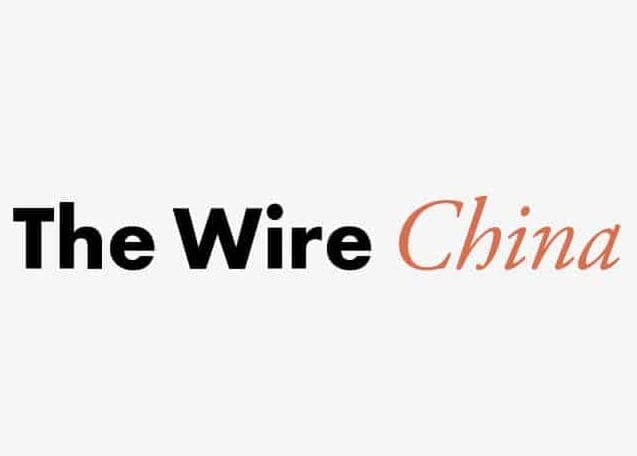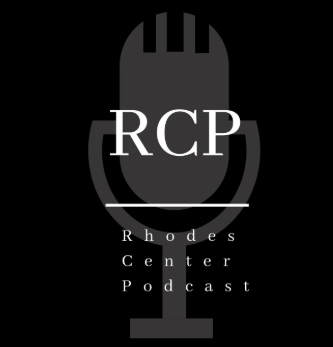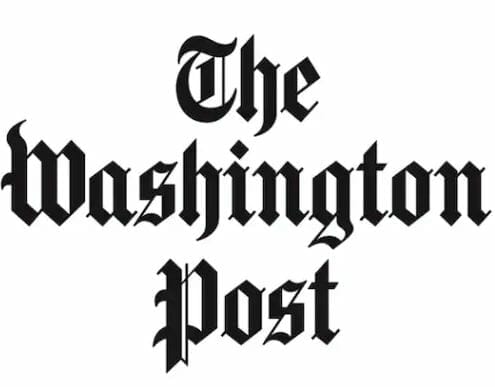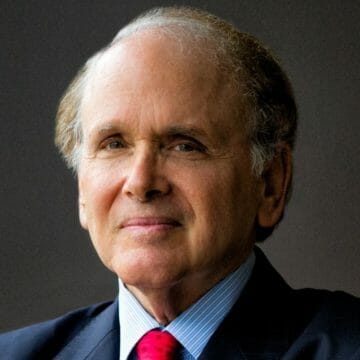Videos
Learn More About Jonas Nahm
As industries all over the world are being reshaped due to geopolitical and economic fragmentation, it’s more important than ever for leaders to be able to take an informed, strategic approach to international business.
Amid this shifting landscape, Jonas Nahm, Ph.D., has become a trusted guide for helping companies and governments worldwide navigate the complexities of global markets.
The Andrew W. Mellon Associate Professor at the Johns Hopkins School of Advanced International Studies (SAIS) and a past senior economist for industrial strategy at the White House Council of Economic Advisors, Nahm combines deep academic expertise with real-world policy experience that includes incisive knowledge of how the U.S. government operates behind the scenes.
As the U.S. pulls back from global trade through tariffs and export controls, countries are reevaluating their trade relationships and are restructuring their engagement with the global economy. Nahm’s multidisciplinary background uniquely equips him to help leaders understand how today’s political forces and market logic determine the worldwide flow of goods, capital and technology. He also clarifies how executives, especially those who run businesses with complex global supply chains and real estate holdings, can adjust their corporate approach in response.
“The political and economic moment we’re in, where we’re basically moving past globalization, is really disorienting to people,” Nahm points out. “It’s vital for leaders around the world to understand America’s evolving positions and policies. They must also have a working knowledge of how the U.S. responds to the Chinese government’s intervention into its economy and the consequences that follow.”
With clear frameworks for scenario planning in response to a variety of trajectories that global commerce may take in the years to come, Nahm offers a sharp lens into the weaponization of trade, the reshaping of the semiconductor industry, and the impact of U.S.-China tensions on everything from finance to manufacturing.
The Sustainability Opportunities Economic Policy Can Create
Through customized speaking and advisory arrangements, Nahm provides leaders with a working knowledge of the true value of international cooperation in fighting climate change.
Author of “Collaborative Advantage: Forging Green Industries in the New Global Economy” (Oxford University Press, 2021), winner of the International Studies Association’s Best Book on International Political Economy award, he delivers an accessible primer on the politics of green energy investment.
“Today’s energy transition has the potential to be what the IT revolution was in the 1990s,” explains Nahm, recipient of the 2022 Don K. Price Award for Best Book on Science, Technology, and Politics. “Those who can take the IT playbook of 30 years ago and apply it to sustainable energy today are going to be able to create enormous gains.”
Detailing the role of financial regulations in either supercharging or stymying green energy advancement around the world, Nahm reveals how government priorities and sustainability are intimately entwined.
Clear-Eyed Guidance for Global Audiences
Having lived, studied and worked in Europe, North America and China, and fluent in English and German, Nahm brings a truly global perspective to analyzing today’s most pressing cross-border market concerns. Framing the current moment in a broader sense, he outlines what the impacts on economies in the U.S. and beyond may look like.
A solutions-focused advisor, Jonas Nahm helps executives restructure operations to work in a world where trade is more constrained and politics shape supply chains unlike any other time in history. Leaders leave his engagements newly empowered to create informed business and sustainability strategies with an eye toward the next six weeks, six months, six years and beyond.
###
Jonas Nahm, Ph.D. is the Andrew W. Mellon Associate Professor at the Johns Hopkins School of Advances International Studies. From 2023 – 2024, he served as the senior economist for industrial strategy on the White House Council of Economic Advisers where he covered matters pertaining to industrial policy implementation, global trade and supply chain resilience. Previously, he was a postdoctoral fellow at the Watson Institute for International and Public Affairs at Brown University.
Nahm’s work has been published in numerous academic journals, including Science, Nature, the American Political Science Review and Perspectives on Politics. His research has been recognized with multiple awards, including the 2021 American Political Science Association Award for best paper on public policy.
Nahm holds a Ph.D. in political economy from the Massachusetts Institute of Technology, an MA in political science and Asia-Pacific studies from the University of Toronto and a BA in social and political sciences from the University of Cambridge.
Jonas Nahm is available to advise your organization via virtual and in-person consulting meetings, interactive workshops and customized keynotes through the exclusive representation of Stern Speakers & Advisors, a division of Stern Strategy Group®.
Tariffs, Trade and How We Got Here in the First Place
The international trade landscape continues to be unsettled as tariffs come and go seemingly by the day. How can business leaders, especially those in manufacturing, in the U.S., Europe and beyond, reassure stakeholders in today’s uncertain global marketplace? According to Johns Hopkins School of Advanced International Studies professor and political economist Jonas Nahm, Ph.D., to understand the current state of worldwide trade, it’s important to look back on the conditions that got us here in the first place. In this exceptionally relevant presentation, Nahm frames our current moment in a broader context, addressing questions such as “how did we get to this moment where trade deficits are seen as such a problem?” “What is the dissatisfaction with the makeup of the global economy when it has worked successfully for so long?” and more. Audiences will leave with immediately applicable tactics for making sense of the current state of the global marketplace. Leaders will be newly equipped with frameworks for responding strategically to the evolving trade landscape in the next six weeks, six months and six years.
Understanding China’s Role in Today’s Global Marketplace
With today’s unprecedented globalization, world economies are more reactive to disruption than ever, especially to the policy whims of the U.S. and China. As the U.S. pulls back from global trade with tariffs and export controls, countries are increasingly turning to China as their main trade partner. In this eye-opening presentation, Johns Hopkins School of Advanced International Studies professor and former White House Council of Economic Advisors senior economist Jonas Nahm, Ph.D., recounts how China’s entry into the global marketplace has streamlined supply chains and lowered costs, while clarifying how firms should understand the Chinese government’s intervention into its economy. Nahm draws on his experience both living in China and serving as a top White House economic advisor to help leaders, especially those in Europe, understand the trade relationship between the U.S. and China, the American government’s policy goals, and why this moment in the global economy is so disorienting. Attendees will leave with clear strategies for scenario planning in response to a variety of trajectories that worldwide commerce may take in the years to come.
Globalization and Sustainability: How Economic Policy Can Either Push or Throttle Climate Progress
As the climate crisis grows more urgent, globalization has fostered collaboration between countries. But, as tensions grow between superpowers, how will sustainability initiatives be impacted? According to Johns Hopkins School of Advanced International Studies professor and political economist Jonas Nahm, Ph.D., while global collaboration has led to the cost of green technologies rapidly decreasing, rising geopolitical tensions, especially between the U.S. and China, are threatening to derail clean energy progress. In this timely presentation, Nahm draws on his award-winning book “Collaborative Advantage: Forging Green Industries in the New Global Economy,” to take a deeper look at how economic policies – from climate change initiatives and manufacturing priorities to tariffs and supply chains – can either supercharge or stymie green energy advancement around the world. Audiences will learn how sustainability and economic policy are intimately entwined, leaving with a working knowledge of the true value of globalization and cooperation in fighting climate change.
AI Beyond the Boardroom: The Politics and Economics of Emerging Technology
In the last few years, there’s been much talk among corporate leaders about strategies for implementing AI. However, not much attention has been given to the bigger picture of how economic and political policies around the world can profoundly affect everything from AI development to the technology’s impact on sustainability. According to Johns Hopkins School of Advanced International Studies professor and political economist Jonas Nahm, Ph.D., trade policies such as export controls and tariffs are reshaping the global semiconductor and microchip industries. In this revealing presentation, Nahm uncovers how emerging technologies, their development, deployment and environmental impact are tightly intertwined with the geopolitical maneuverings of countries like the U.S. and China. Audiences will leave with a more focused lens into the true power of AI’s influence on politics, economics and global sustainability efforts – well beyond boardroom debates and marketing buzzwords.

Modelling the Impacts of Policy Sequencing on Energy Decarbonization
(Nature Climate Change, December 2025)
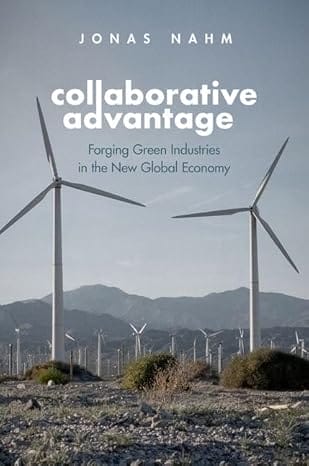
Collaborative Advantage: Forging Green Industries in the New Global Economy
(Oxford University Press, September 2021)
Uncertainty is surrounding the world economy and the smooth flow of trade thanks to tariffs, globalization and geopolitical fragmentation. Among the world’s most sought-after analysts and advisors on global economic affairs is Johns Hopkins School of Advanced International Studies professor and political economist Jonas Nahm, Ph.D. A former senior economist at the White House Council of Economic Advisors, he helps leaders adjust strategy for today and scenario plan for the future in the face of the reordering of trade, supply chains, and economic and industrial policy. Jonas Nahm is available to discuss any or all of the following topics during keynote presentations and consultations plus small group and one-on-one advisory meetings. Each program can be customized to meet the needs and goals of your organization with the added option of meeting virtually or in-person.
- Tariffs, Trade and How We Got Here in the First Place
- Understanding China’s Role in Today’s Global Marketplace
- Globalization and Sustainability: How Economic Policy Can Either Push or Throttle Climate Progress
- AI Beyond the Boardroom: The Politics and Economics of Emerging Technology







